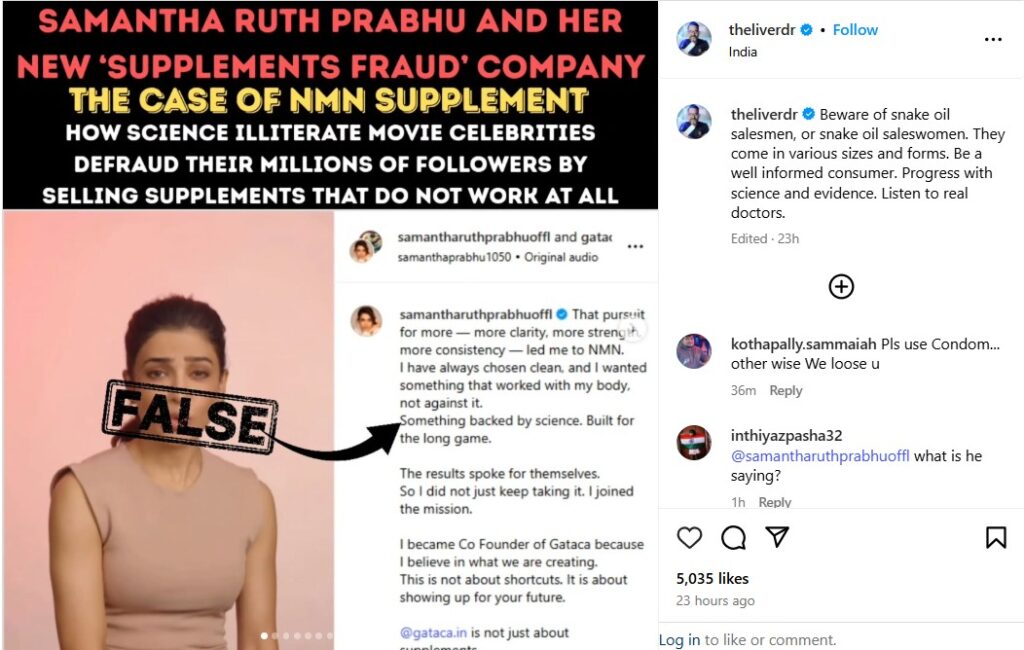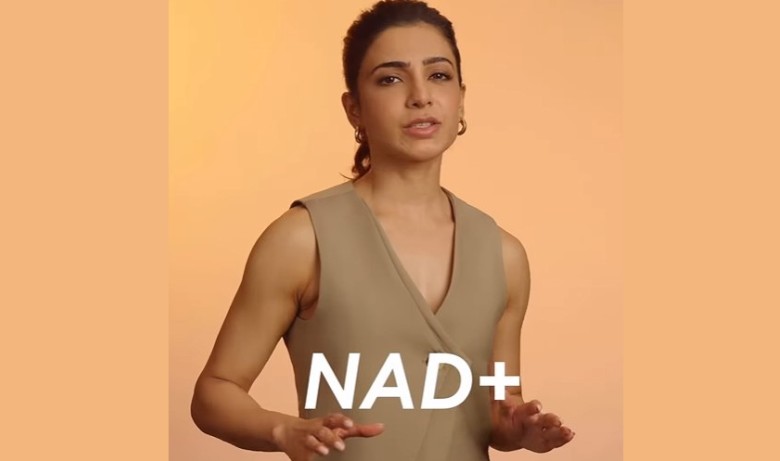June 2, 2025: Samantha Ruth Prabhu is in the controversy spotlight. The reason, the wellness industry is booming, and celebrities are increasingly stepping into the spotlight not just as endorsers but as brand founders. But when health claims meet medical scrutiny, lines blur, and that’s where the current spotlight on actress Samantha Ruth Prabhu begins.
Known for her presence in the Indian film industry, Samantha recently announced her role as co-founder of a wellness brand marketing supplements that contain NMN (Nicotinamide Mononucleotide). The product is being positioned as a solution for fatigue, poor focus, and age-related decline — with promotional content linking it to NAD+ regeneration, a cellular process tied to energy metabolism.
The issue isn’t the branding, it’s the science. Or the lack of it, according to Dr Cyriac Abby Philips, a liver specialist who frequently uses social media to speak against pseudoscientific medical practices. Without naming the product in promotional terms, he challenged the scientific grounding behind NMN-based supplements, questioning their efficacy and warning the public to be cautious of celebrity-backed health solutions.
Wellness Claims by Samantha Criticised by Liver Specialist Dr. Cyric

“These molecules haven’t passed robust clinical trials,” Dr Cyriac emphasized, pointing out that many such compounds show promise in lab studies but fail to deliver in real-world human applications.
What raises the stakes is that Samantha Ruth Prabhu isn’t just promoting the product — she’s deeply tied to it, having described her personal journey with the supplement and claiming noticeable benefits, which she said inspired her to take on a founding role in the company. Her statements highlight the product’s third-party testing and purpose-driven mission, presenting it as clean and science-forward.
Critics, however, argue that no amount of lab testing guarantees effectiveness in actual treatment or prevention unless validated through peer-reviewed clinical research. For many in the medical field, celebrity-backed products often skate on thin scientific ice.
This is not the first time Samantha has faced criticism over health-related advice. In a prior incident, she referenced a controversial home remedy for respiratory issues, which was later flagged by medical experts as unsafe. At the time, the debate revolved around the risk of public figures promoting questionable practices without medical training.
In the current case, Dr Cyriac’s comments reflect a broader concern in the health community: the growing influence of entertainment figures in shaping consumer health behavior, often without the burden of evidence required in regulated medical settings.
For consumers, the conversation is a timely reminder. Wellness marketing is increasingly persuasive, but the responsibility to verify claims rests not just with regulators or doctors — but with every buyer. While supplements may offer perceived benefits, they should never replace foundational health habits: consistent sleep, balanced nutrition, regular exercise, and professional medical consultation.
Samantha has not yet responded to the recent statements by Dr Cyriac. Whether she addresses them or not, the discussion around NMN and celebrity wellness ventures isn’t going away soon — and neither are the questions about how we define credibility in an age where fame often doubles as influence.






